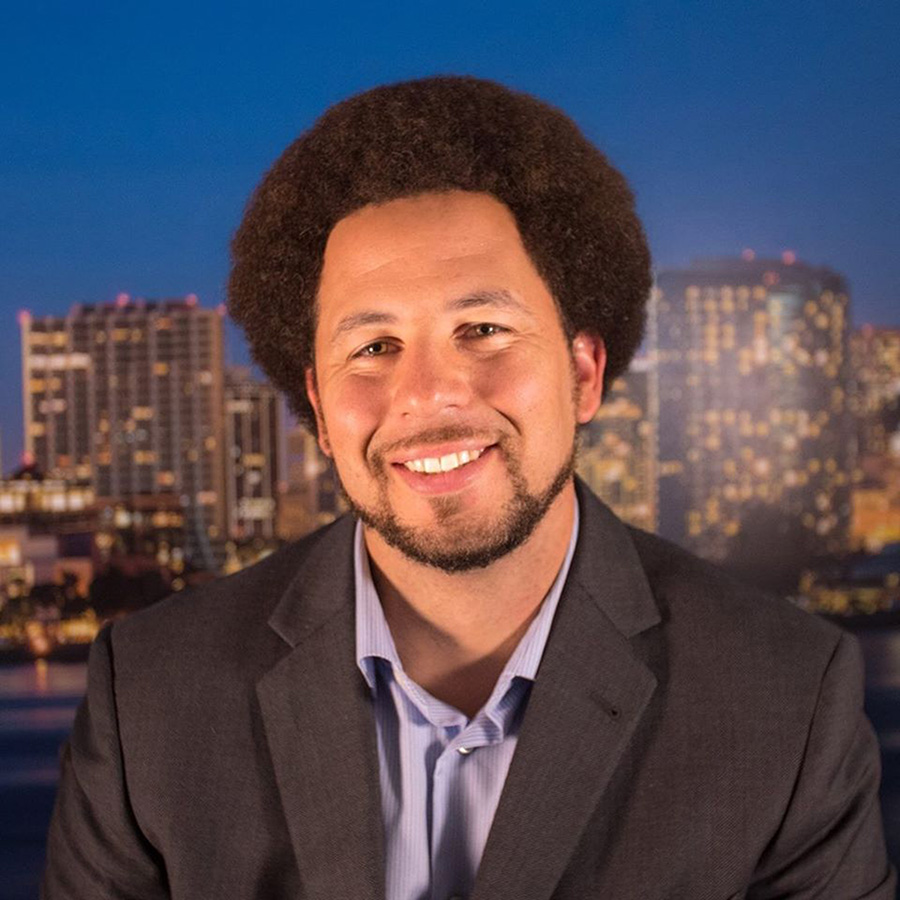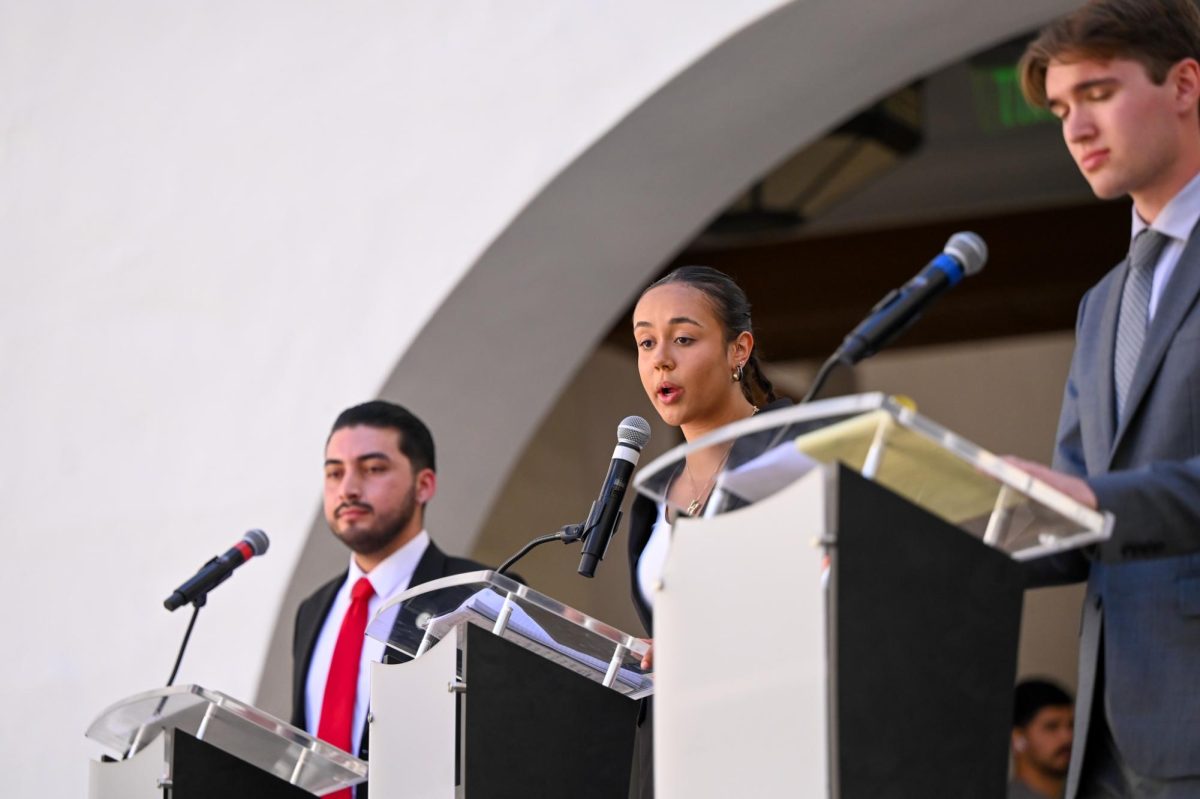A new class offered to graduate students at San Diego State has garnered both criticism and support from students, administration and community members.
Black Minds Matter, created and taught by education professor J. Luke Wood, will be offered in person to roughly 30 students at SDSU, as well as online via live broadcast to approximately 10,000 participants from Oct. 23, 2017 to Dec. 11, 2017.
The course is described as a way to train educators to prepare and organize their classrooms as sites for civil resistance against racism, Wood said.
“We, often times as a community, confront justice through marches, demonstrations, sit ins, and vigils and the classroom is another site, particularly through the avenue of teaching through empowerment, that can serve for that type of civil resistance,” Wood said.
Such resistance, according to Wood, stems from the fact that black men and boys fall into two categories: one, they are undervalued in education and are assumed to be academically inferior, and two, they are criminalized in the classroom, often times assumed to be deviant or up to no good.
“The result of (these perceptions) is that (black men and boys) are exposed to exclusionary discipline or put in special education as a dumping ground for them, which really only does one thing well, and it’s to socialize people to go into the prison-industrial complex,” he said.
The course draws parallels from the Black Lives Matter movement in an attempt to change the way educators interact with black men and boys in the classroom.
“Nearly all educators are racist,” Wood said. “They are not overtly white supremacists but they harbor perceptions of black males that are informed by what they have seen in wider society through the media, news, in books and in film. They engage black males from a point of stereotypes, microaggressions and bias.”
Wood said that he wants educators to understand where this bias comes from and to work to move away from it.
“Beyond that, we are organizing how we talk about what a new teaching and learning practice should look like through the Black Lives Matter principles of loving engagement, restorative justice and collective values,” he said.
Wood said that he did not anticipate the amount of criticism that he has received so soon before the class has begun.
“We anticipated that there would be some people who were not happy with the course, because whenever you speak love into a system of hate, there is a visceral reaction,”he said. “We did expect that there would be some concerns, but the way that the concerns are manifested have certainly taken us by surprise.”
Jon Coupal, the president of the Howard Jarvis Taxpayers Association, is working to have the class cancelled, saying that it’s a waste of tax money.
“We should be spending public funds on courses that will actually prepare the next generation for meaningful jobs instead of teaching them how to be victims,” Coupal told the San Diego Union-Tribune.
Wood rebuffed this criticism.
“What you see is an organization, led by a white male, [whose] position is to advance ideas and policies that benefit those who are the ‘haves’ of our society,” Wood said. “Our class speaks against that while providing some realistic pathways, and has a reach far beyond what a normal class would have. That, for some people, can be scary.”
Brandon Jones, the President of the San Diego State College Republicans, echoed Coupal’s criticism in a statement Sept. 12.
“Taxpayer money must not be used to fund political campaigns of any kind, especially those associated with Black Lives Matter,” said Jones. “The university must distance itself from this project and others like it that teach students to become victims instead of preparing them to become contributing members of society.”
Despite efforts from many to have the class cancelled, Wood said university administration has remained supportive.
“We know that by fourth grade, only 14 percent of black males will be proficient in reading, [black males] are two times more likely to be suspended, three times more likely to be expelled, only 52 percent will graduate from high school, and most of them who go to college won’t finish,” Wood said. “Obviously what we’re doing [in education] is not working and I think that campus administration recognizes that and recognizes the need for the course.”
Wood said that black doctoral students are a large part of the inspiration for the class.
“Last year when Alfred Olango was killed in El Cajon, another example of an unarmed black (man) being shot by police, we had a lot of our black doctoral students who were involved in the organizing and demonstrations around that,” Wood said. “This class is the outgrowth of conversations that came from that event and from the desire to have a response in a systematic way to some of those challenges that they voiced.”
Second year doctoral student Michelle DeJohnette said that she is very excited for the class and is especially interested in learning how to teach in a manner that is culturally responsible.
“What I hope to learn in the class is about how comparing black and white children is inherently racist, and how we can make education for black children more equitable and what that will look like in the classroom,” DeJohnette said. “It’s classes like this where the counter narrative is told and hopefully practitioners will get an insight on what African American students need to be successful.”
Wood said that in contrast to many critics labeling his course as indoctrination, he aims to to provide a true education which shows how racially charged systems manifest and how they adversely affect our community.
“I would say that indoctrination is putting a black child in a classroom and stealing their desire to learn, teaching them that they can be nothing more than a criminal or an entertainer and exposing them to teachers who prepare them for the prison industry.” Wood said. “What they call indoctrination, I call education and what they call education, I call indoctrination.”









